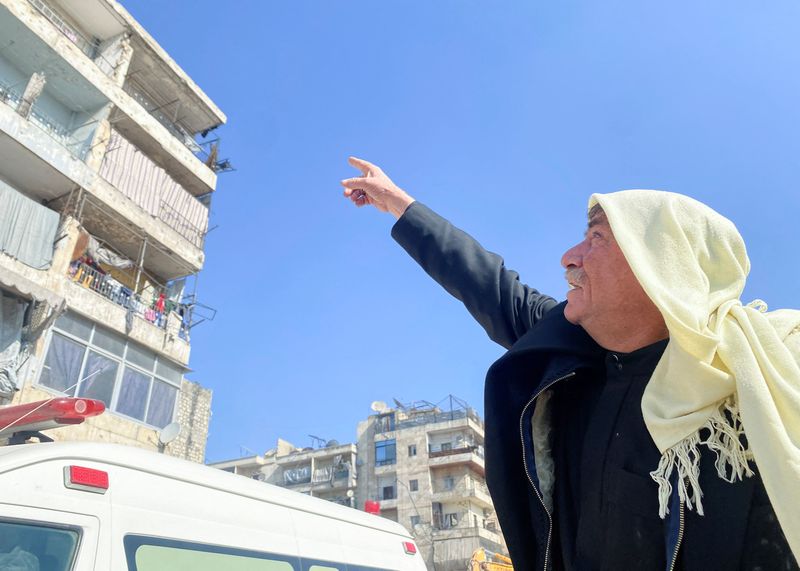ALEPPO, Syria (Reuters) - Masoud Douba did not abandon his home over years of bombardment in the Bustan al-Basha district on the frontline of Syria's Aleppo but Monday's earthquake forced his family to evacuate and they have no idea when, or if, they will be allowed to return.
The 63-year-old olive and pistachio farmer, along with his wife, son, daughter-in-law and four grandsons, have now joined the millions of Syrians displaced from their homes over recent years, temporarily moving into the house of a relative.
"Missiles fell here and on the buildings, and in spite of all that we did not move or leave Aleppo," Douba said, standing near the now-empty building where he had lived.
Pro-Syrian government forces fought an array of rebel groups in Aleppo from 2012-16 as part of the ongoing civil war, and Bustan al-Basha was among the worst-affected districts.
Douba's own building, behind red-and-white striped police tape to stop people entering, and where laundry could be seen hanging on balconies, is still pocked with bullet marks from that period.
During times of heavy shelling, the family used to go into the basement and spend terrified hours waiting for the all clear - a contrast to Monday's sudden disaster.
"This earthquake came and went all at once," he said.
Next to his abandoned home, a pile of rubble showed where the next-door building had collapsed when the earthquake struck.
Syria's government said on Thursday that 1,350 citizens had been confirmed killed in areas it controls. A rescue service in the opposition-held northwestern region of Syria not far from Aleppo said nearly 2,000 people had also died there.
"We managed to get out with the kids. When we got out, we saw this building collapse before our eyes, vertically. My car that was parked under the building was hit. Thank God we are all fine and the children are fine," Douba said.

Now the family, the children aged between two and 10, are staying with a relative in the nearby Qaterji district, borrowing blankets and clothes because they are forbidden from re-entering their apartment.
The inhabitants of other buildings in their area have already been allowed back home. But their building, closer to that which collapsed, has still not been declared safe and they must continue to stay away.